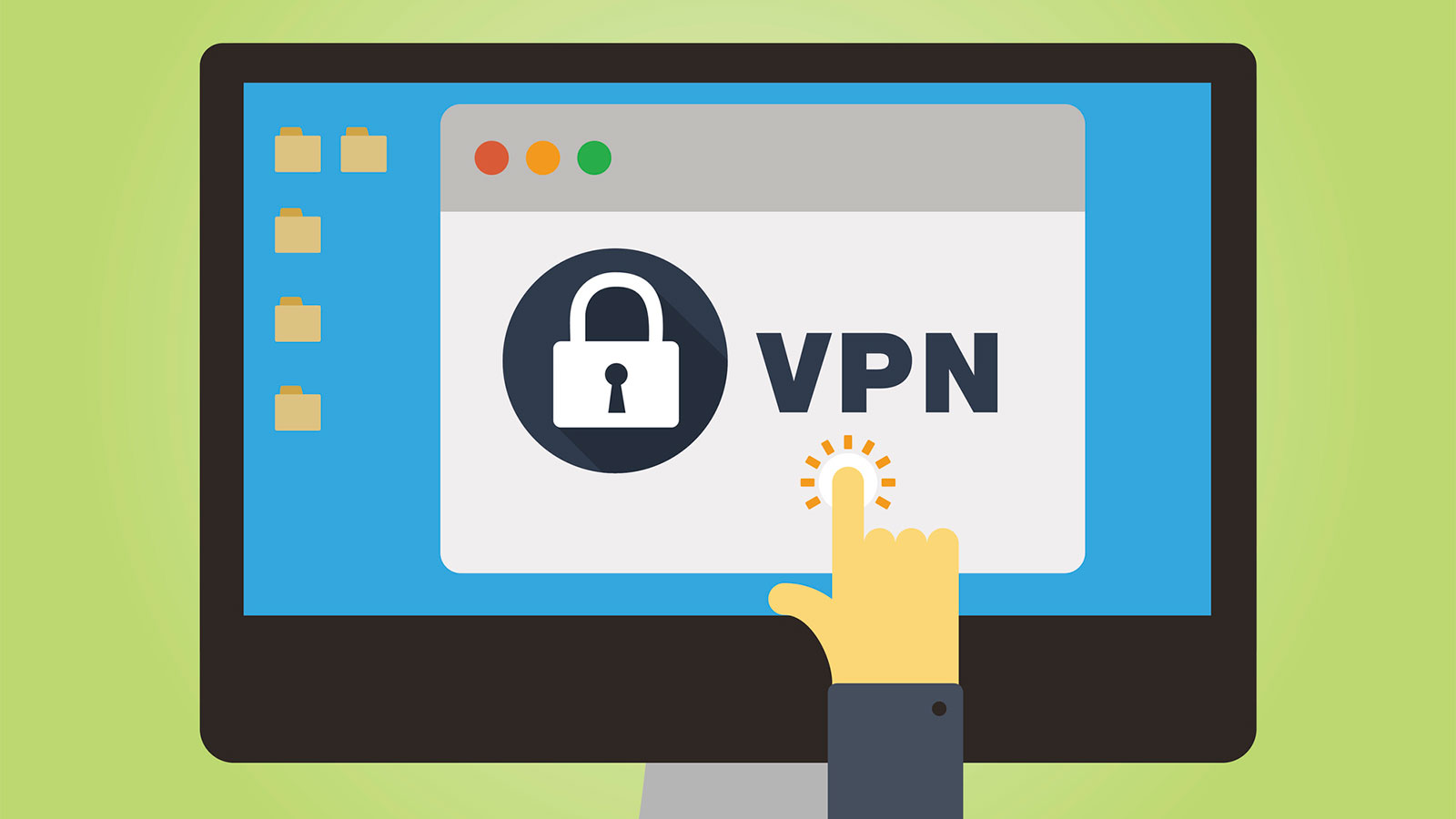How to Secure Web Browsing? - 7 Tips
In today's digital age, securing web browsing has become more important than ever before. With the widespread use of the internet and the deep integration of digital life, both individuals and businesses are increasingly relying on the internet, enjoying the convenience it brings.
But does it come without risks? Certainly not!
The growing sophistication of cybercrime and the frequent occurrence of data breaches have posed significant challenges to personal privacy and corporate data protection. Therefore, in this article, we will list key tips for secure web browsing to help you safeguard both personal and business privacy.
Part 1. Why Secure Web Browsing Matter?
For Personal
For individual users, secure web browsing can protect sensitive information such as passwords, credit card details, and browsing history from falling into the hands of malicious actors.
With the rise of cyberattacks, phishing attempts, and identity theft, safeguarding your online activities is crucial to prevent privacy breaches and fraudulent activities effectively.
For Enterprise
For enterprises, secure web browsing helps protect company data, prevent data breaches, and ensure compliance. A breach in cybersecurity can lead to costly data leaks, legal liabilities, and potentially the loss of trust from customers and partners.
It is essential for businesses to ensure the security of web browsing for both employees and customers, especially when handling sensitive or proprietary information.

Part 2. How to Secure Web Browsing? - 6 Tips
So, how exactly can you ensure secure web browsing? In the face of increasingly complex online threats, it’s important to take proactive measures. We will introduce six practical tips to help you enhance the security of your web browsing from multiple angles.
By following these simple yet essential tips, you can enjoy the convenience of the internet with greater peace of mind, while maximizing your online security.
1Update Software Regularly
Regularly updating your browser, operating system, and antivirus software is a crucial step towards ensuring online security. Keeping these programs up-to-date enables you to effectively defend against the constantly evolving cyber threats.
Developers frequently release updates and patches to fix known security vulnerabilities, which are often the main entry points for hackers to launch attacks.
If you fail to update in a timely manner, your device may be exposed to unpatched vulnerabilities, making it highly susceptible to malware, viruses, or hacking attempts. Enabling automatic updates or regularly checking for updates is crucial to ensure protection.
2Use a Safe Browser
Choosing a browser known for its security is a crucial step in ensuring the safety of your web browsing. Among the many available browsers, it's important to prioritize those that offer comprehensive privacy controls, automatic updates, and strong protection against malicious websites.
A safe browser not only shields your personal information from cybercriminals but also effectively prevents malware attacks. These browsers are typically equipped with more efficient security protocols, such as blocking third-party trackers and regular security patch updates, ensuring that you browse the internet in a safer environment.
In the following sections, we will introduce several browsers renowned for their security, helping you make the best choice and further enhance your online safety.
3Block Pop-Ups
Pop-up ads are frequently used as a primary method for malware and phishing attacks, with cybercriminals frequently exploiting these windows to trick users into clicking, leading to device infections or personal information theft.
By blocking pop-ups, you can significantly reduce the risk of accidentally clicking on malicious links or downloading harmful content, effectively safeguarding your device from potential threats.
Therefore, enabling the pop-up blocker feature in your browser is a simple yet effective security measure that can help you maintain a higher level of safety during your online.

4Enable “Do Not Track” in Your Browser
Enabling the "Do Not Track" feature in your browser can effectively prevent advertisers and websites from tracking your online activities, reducing the sharing of personal data across different platforms. This not only helps you avoid intrusive targeted ads but also significantly enhances your privacy protection.
By limiting third-party monitoring of your browsing habits, you can have a safer and more private online experience, minimizing the risk of your personal information being misused.
5Clear Web Browser Cache & Cookings
Regularly clearing your browser’s cache and cookies is an important step in maintaining online security, not only improving your browser's performance but also effectively protecting your privacy. Cached data and cookies store login information, preferences, and browsing history from websites you've visited. Third parties may use this information for tracking or even attempt to steal your personal data.
By clearing this data, you can prevent websites and advertisers from gaining excessive insight into your online activities, reducing the risk of potential privacy breaches. Clearing your cache and cookies helps prevent the accumulation of outdated data, ensuring you receive the most up-to-date content each time you visit a website, thus enhancing your overall browsing experience.
Therefore, regularly clearing this information is a straightforward yet effective way to protect your privacy while reducing third-party tracking and enhancing your web security.
6Use VPN
VPN is a powerful tool that can secure and private your internet connection. Even in public Wi-Fi environments such as coffee shops, airports, or hotels, using a VPN can effectively protect your privacy, preventing hackers and other malicious attackers from stealing your personal information and sensitive data.
Not only does it provide additional protection against data theft, but it also ensures the security and safety of your information transmission when operating on unsecured networks. Therefore, using a VPN can significantly reduce the risk of cyberattacks or data breaches while online, allowing you to browse with greater peace of mind.

Part 3. Best Way to Secure Enterprise Web Browsing
For enterprises, ensuring secure web browsing across multiple devices presents a complex challenge. However, Mobile Device Management (MDM) solutions, such as AirDroid Business MDM, offer a range of powerful features designed to enhance network security in enterprise environments. Here are how MDM can help ensure browsing safety:
1. Kiosk Browser
With the kiosk browser, enterprises can restrict access to websites only to approved ones. For example, AirDroid Business supports manage Android and Windows versions, therefore, no matter employees use Android outside or Windows at office, it can ensures that employees only access secure and business-related sites.
This control measure effectively prevents access to unauthorized internet content, helping businesses maintain network security and compliance while also enhancing productivity.
2. Single & Multi-App Mode
With single or multi-app mode, enterprises can restrict devices to run only one or a few specific applications, effectively preventing data loss and device misuse. This approach not only helps prevent data breaches but also blocks cyber attackers from exploiting various applications to gain access.
By limiting the functionality of devices, companies can reduce the risk of accidental browsing or downloading of malicious content, thereby further enhancing overall security.
3. Whitelist Website
By implementing a whitelist of approved websites, enterprises can ensure that employees or customers only access secure, vetted domains. This practice effectively limits unnecessary internet access, reducing the risk of phishing and malware attacks. By limiting accessible websites to a carefully curated list, companies can better protect sensitive information and enhance network security overall.
4. Device Limitation
Businesses can restrict device usage based on factors, effectively reducing unauthorized web browsing and reducing the risk of cyberattacks on the corporate network. By setting specific usage rules, such as limiting modifications to Wi-Fi settings, security settings, and account settings, enterprises can gain better control over their employees' online activities, further enhancing data protection measures.
5. App Whitelist
Similar to a website whitelist, the app whitelist feature allows enterprises to restrict which applications can be installed or run on devices. This measure effectively prevents potentially malicious applications from entering the corporate network, thereby safeguarding the overall security of the organization.
By only allowing vetted and approved applications, businesses can significantly reduce security risks and avoid situations where employees might inadvertently download or use malicious code.
Part 4. Top Browser Security Features
When searching for a secure browser, you should consider the various key features it should have. These features not only enhance your online security but also protect your personal information and privacy effectively.
Let's discuss the functions and characteristics of an excellent secure browser together, helping you browse the web with greater peace of mind.
1Blocking Third-Party Trackers
The built-in tracking protection feature can prevent third-party websites from tracking your browsing habits, ensuring better protection for your privacy.
2Incognito Browsing
Incognito mode or private browsing does not store browsing history, cookies, or search queries, making it difficult for others to track your online activities.
3Password Management
Some secure browsers come with built-in password managers that help you store and autofill strong passwords, reducing the risk of phishing attacks.
4Browser Compartmentalization
This security feature isolates different web pages or tabs, preventing a compromised site from affecting other sites you have open in your browser.

Part 5. What are the Most Secure Web Browser?
In the previous discussion, you have learned about the key features that a secure browser should possess. Next, we will introduce some widely recognized secure browsers that meet these criteria. These browsers not only have robust privacy protection features but also effectively defend against online threats, ensuring your safety and peace of mind while browsing the web.
Let’s take a look at these trustworthy browsers.
1Google Chrome
Google Chrome is one of the most popular browsers today, renowned for its exceptional security features. It employs advanced sandbox technology, which means that each tab and plugin operates in a separate environment, effectively isolating potential malware and preventing it from affecting the user’s device.
Additionally, Google Chrome regularly releases security updates to promptly fix known vulnerabilities, ensuring that users are always browsing in a safer environment.
The browser also includes built-in malware and phishing website detection capabilities, further enhancing its protective measures and making it more difficult for cybercriminals to compromise users' personal information and online activities.
2Firefox
Firefox is renowned for its strong privacy controls and exceptional security performance, making it an ideal choice for users who prioritize data privacy. The browser offers a variety of privacy protection features, such as default tracking protection, which effectively prevents advertisers and third-party websites from collecting users' online activity data.
Moreover, Firefox regularly updates its security to fix known vulnerabilities, ensuring that users have the latest security protections while browsing. Its security is further enhanced by built-in malware and phishing site detection features, which provide timely warnings about potential security threats and reduce the risk of malware infections.
3Safari
Apple's Safari browser is renowned for its exceptional security features, particularly when used on Mac and iOS devices. Safari includes a range of powerful security measures, such as Intelligent Tracking Prevention, which effectively blocks advertisers and third-party websites from tracking users' online activities, thereby protecting user privacy.
Furthermore, Safari employs a robust malware protection system that can detect and block known malicious websites and downloads in real-time, providing users with an extra layer of security. The browser also receives regular security updates to address potential vulnerabilities, ensuring that users benefit from the latest security protections while browsing.
4DuckDuck Go
DuckDuckGo is a search engine that focuses on user privacy, known for its powerful tracking protection features. Unlike other search engines, DuckDuckGo does not collect or store any personal data, ensuring that users' search activities remain anonymous.
This means that no matter what you search for, there are no traceable records left behind, effectively preventing advertisers and third parties from monitoring user behavior. Also, DuckDuckGo provides secure encrypted connections, ensuring that your information is not intercepted or altered while accessing websites.
5Tor Browser
Tor Browser is the best choice for users seeking complete anonymity, as it effectively conceals users' locations and online activities through multi-layered server routing. This unique architecture routes internet traffic through multiple random nodes, significantly increasing the difficulty of tracking and monitoring, providing a highly secure browsing experience.
Tor Browser can bypass geographical restrictions and censorship, allowing users to access blocked or restricted websites securely. Its strong encryption safeguards data from interception or alteration during transmission, providing peace of mind for sensitive operations.
Final Thoughts
Secure web browsing not only protects personal or corporate data, but also protects privacy and addresses potential online threats. Taking proactive measures, such as using built-in security features of browsers or enterprise-level tools like AirDroid Business, can significantly reduce cybersecurity risks. By following these tips and using a secure browser, you can confidently browse the internet and protect your information effectively.





Leave a Reply.